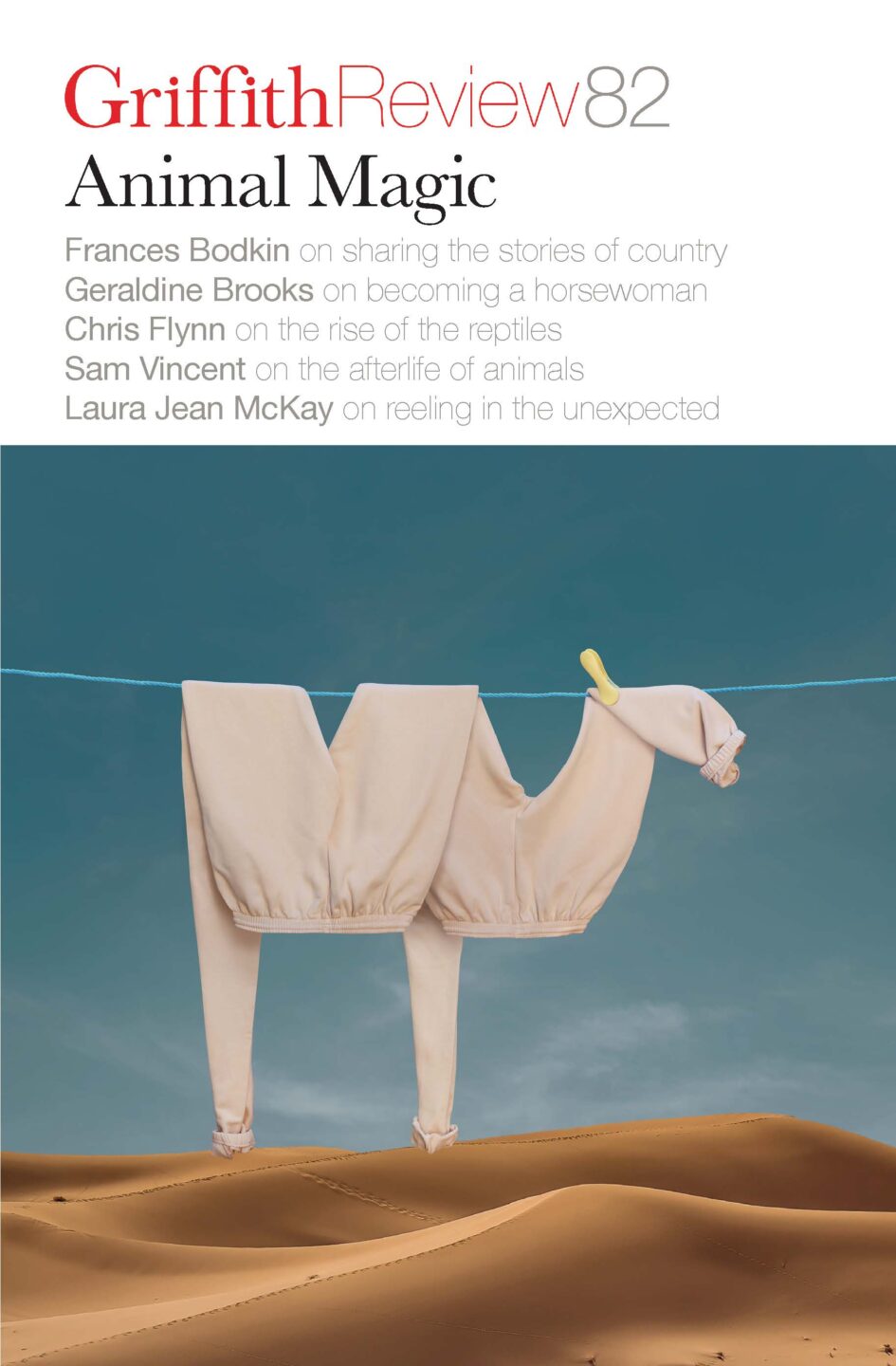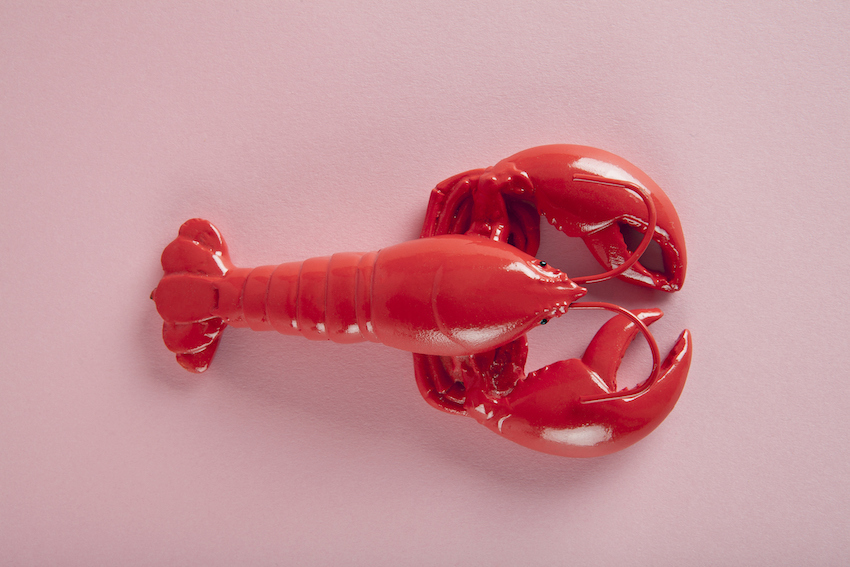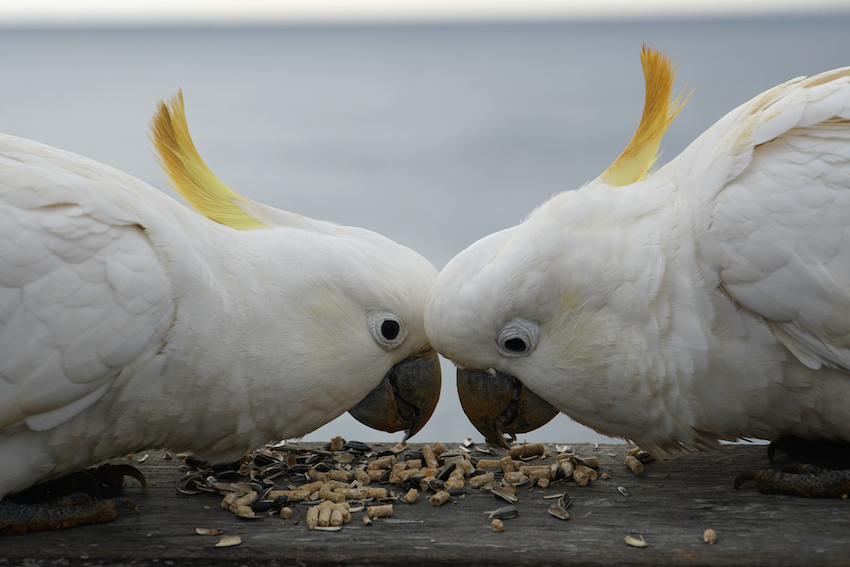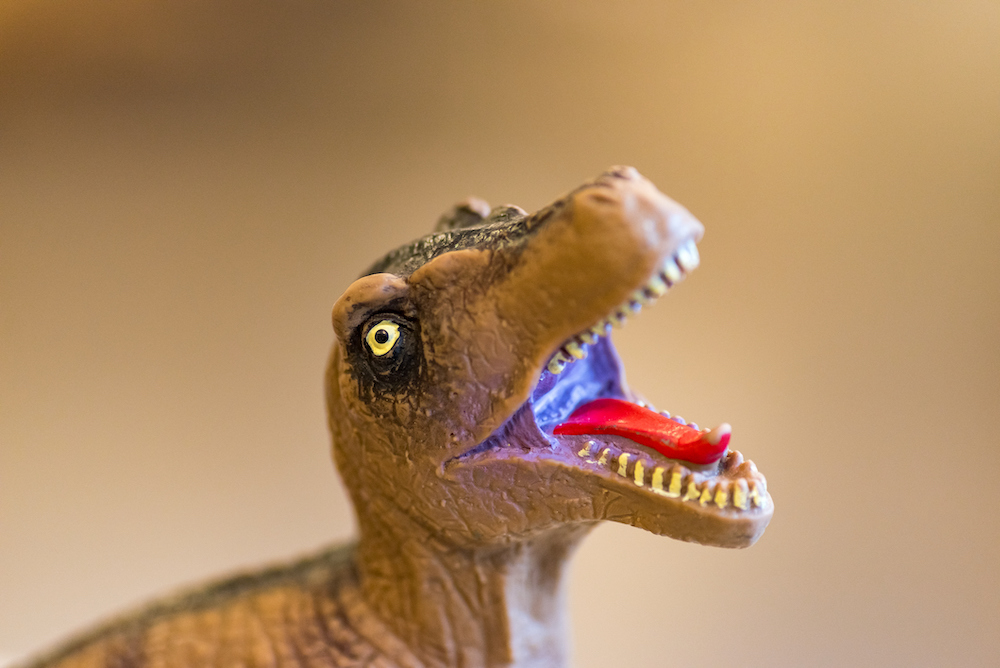Featured in

- Published 20231107
- ISBN: 978-1-922212-89-4
- Extent: 208pp
- Paperback, ePub, PDF, Kindle compatible


Already a subscriber? Sign in here
If you are an educator or student wishing to access content for study purposes please contact us at griffithreview@griffith.edu.au
Share article
More from author

A discovery of witches
Unlike the patriarchal and monotheistic Abrahamic religions, paganism is structurally non-hierarchical – although covens (groups or meetings of witches) tend to be nominally led by a high priestess and high priest – and, in the words of influential English Wiccan Vivianne Crowley, pagans ‘worship the personification of the female and male principles, the Goddess and the God, recognising that all forms of the Goddess are aspects of the one Goddess and all Gods are aspects of the one God’. There is no holy book, messiah or central administration, and its ethos is fundamentally exultant – celebratory of the body, nature and the divine.
To clarify a common misconception: most pagans neither believe in nor worship Satan, a figure rooted in Judeo-Christian traditions rather than nature-based spiritual paths. The conflation of pagans with ‘devil-worshippers’ dates to the twelfth century and is a product of the Catholic Church’s campaign to quite literally demonise the horned, cloven-hoofed gods – Pan, Herne, Cernunnos and others – central to the pre-Christian spiritualities the Church was intent on suppressing.
The witch trials of the early modern period, where accusations of devil worship were frequently levelled against those, usually women, who practised folk magic, herbalism or traditional healing (or, in many cases, had simply drawn the ire of a relative or neighbour), reinforced the association between nature-based religion and Satanism. As the historian Ronald Hutton observes in The Witch: A History of Fear, from Ancient Times to the Present (2017),the standard scholarly definition of ‘witch’ has come to denote, in the words of anthropologist Rodney Needham, ‘someone who causes harm to others by mystical means’.
More from this edition

When the birds scream
Non-fictionI read books in which girls like me made friends with cockatoos and galahs, and my mum told me stories about my pop in Queensland who could teach any bird to speak and to whistle his favourite country songs. My favourite story was the one about the bird who used to sit on his shoulder while he drove trucks for work.

Rise of the reptiles
Non-fictionIn tandem with these plans to cultivate meat in laboratories, bioscience companies in Europe, North America, South Korea and China are currently working to resurrect living, breathing examples of the woolly mammoth, thylacine and dodo. While this may seem foolhardy, the intention is to restore nature’s balance by rewilding animal habitats and damaged ecosystems.

Into the void
Non-fictionI think with a little fear, as I often do, of the many other (and much larger) creatures whose natural territory this is, and scan the surrounding water for any dark, fast-moving shadows. But soon I relax and settle into the rhythm of my freestyle stroke. Breathe. Pull. Pull. Pull. Breathe. Pull. Pull. Pull. Breathe.